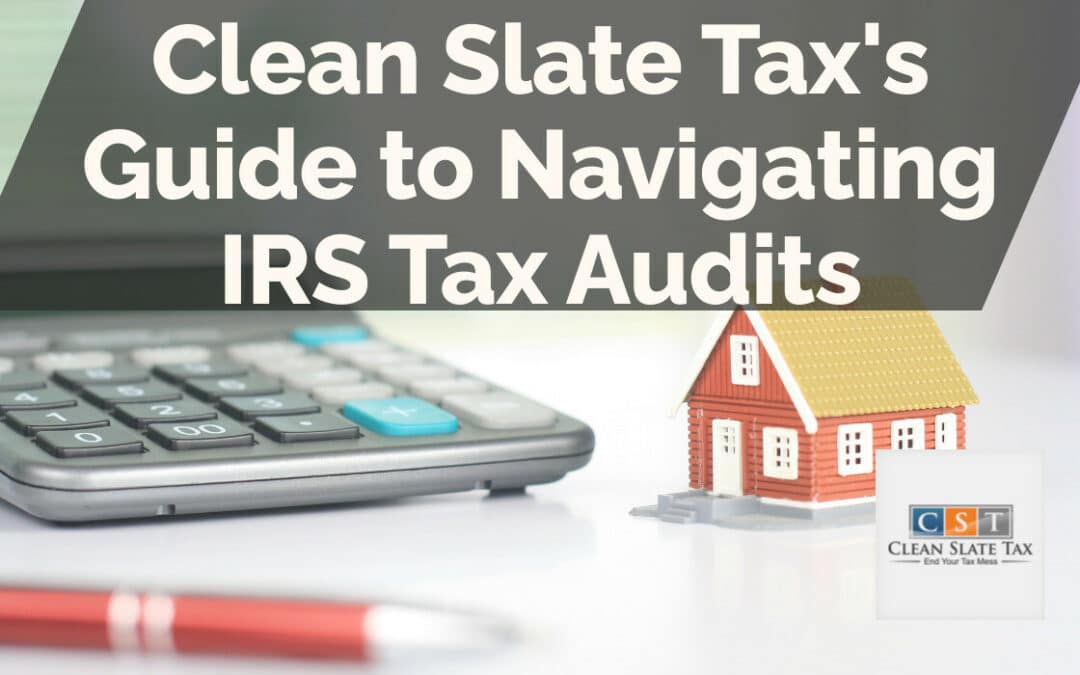Nobody likes the word ‘audit’. It immediately brings to mind thoughts of stress, confusion, and potential financial ramifications. When it relates to IRS tax audits, the process can feel even more intimidating. However, Clean Slate Tax is here to help navigate the choppy waters of IRS audits. In this guide, we’ll break down what an IRS audit typically entails, how to prepare if you’re selected, and answer some common questions regarding the process.
What is an IRS Tax Audit?
An IRS tax audit is an examination of an organization’s or individual’s accounts and financial information. The purpose is to ensure information is reported correctly according to the tax laws and to verify the reported amount of tax is correct.
How the IRS Selects Returns to Audit
The IRS uses a variety of methods to select which tax returns to audit. These include random selection, computer screening, and related examinations. The selected tax return may undergo either a correspondence, office, or field audit, depending on the complexity of the case.
Steps to Take If You’re Selected For an Audit
If you’re selected for an IRS audit, don’t panic. There are key steps to take to ensure you’re well-prepared for the process. First, thoroughly review your tax return. Second, organize and gather all relevant records. Lastly, understand your rights as a taxpayer.
Review Your Tax Return
Prior to your audit, review the tax return in question. Try to understand why the IRS might have flagged it for review.
Organize and Gather Relevant Records
Having all necessary documentation on hand will help streamline the audit process. This may include receipts, bills, legal papers, and loan agreements.
Understand Your Rights as a Taxpayer
You’re not helpless in the face of an IRS audit. Familiarize yourself with the IRS Taxpayer Bill of Rights. You have the right to professional and courteous treatment by IRS employees, privacy and confidentiality about tax matters, and help from a tax professional.
Frequently Asked Questions (FAQs)
-
What triggers an IRS audit?
-
What if I do not agree with the audit findings?
-
Can I avoid a tax audit?
What triggers an IRS audit?
A variety of factors can trigger an IRS audit, including mathematical errors, high income, excessive deductions, or inconsistent reporting.
What if I do not agree with the audit findings?
If you disagree with the audit findings, you have options. You can request a conference with an IRS manager, mediation, or file an appeal if you’re not satisfied with the results.
Can I avoid a tax audit?
While you can’t fully prevent a tax audit, you can reduce your chances. Accurate and honest reporting, proofread returns, and professional tax preparation can help decrease your potential for an audit.
In conclusion, an IRS audit may seem frightening, but with preparation and understanding, it doesn’t have to be. Clean Slate Tax is available to help you understand your tax situation, navigate an audit, and come out the other side with a clean slate.



